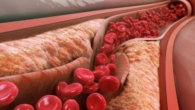
Protein food in the evening leads to heart damage: a list of foods prohibited for dinner
0
A new study published in the Journal of Molecular and Cellular Cardiology at the University of Alabama at Birmingham suggests that increasing the intake of branched-chain amino acids later in the day may have negative effects on cardiovascular health. system.
Results in animal studies show that consuming BCAAs at the end of the active period – during lunch – caused a dramatic growth in the heart, resulting in a 75% increase in cardiomyocyte size in four hours. High BCAA consumption also worsened the progression of heart disease.
Martin Young, Ph.D., professor of cardiovascular disease at UAB, has spent much of his career studying the effects of circadian rhythms on heart health and was surprised by the results.
“This study highlights the connection between heart health and behavior, and in this case, behavior is what time of day we should eat certain nutrients.”
According to Yang, the results of this study could be positive for healthy people. For people with chronic conditions such as obesity, diabetes and heart disease, this could serve as a warning.
“We were blown away by the study,” Young said. “We found that heart cells grew by 75% within four hours of consuming the BCAA meal, but then they returned to normal size for the rest of the day.” Yang added that the increase in heart cells exacerbated heart disease. .
“In our models, a high-BCAA meal at lunch impaired cardiac remodeling, leading to a dramatic decline in cardiac contractile function and ultimately heart failure,” Young said. “However, a high-BCAA meal equivalent to breakfast had no harmful effect.”
So should people start consuming most of their BCAAs in the morning? Young says this study is consistent with that idea.
Population studies are already emerging that suggest we should eat more protein at breakfast and less at dinner. BCAA aminoxyls can be found in meat, poultry, fish, dairy products, and eggs.









Leave a Reply